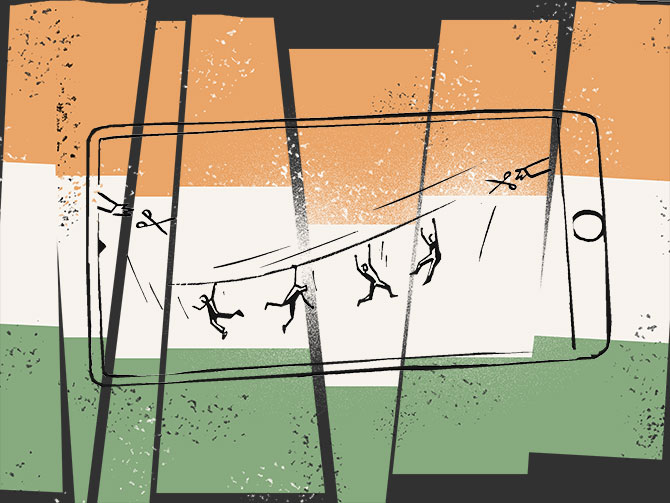A single format and simpler, uniform rules would have kept the service going.
In other parts of the world including in the US, managing demand and capacities along with ensuring preventive measures were an issue, but there was hardly any administrative hurdle anywhere.

At least two recent research reports, one by Technopak and another by LocalCircles, juxtaposed physical neighbourhood stores (kirana) against e-commerce to show physical retail had served the consumer much better since the lockdown kicked in.
They also gave out numbers to say that e-commerce was a tiny fraction of the total retail pie in the country, suggesting that the role of e-tailing was insignificant even as consumers were forced to stay home due to Covid-19-linked lockdown.
Both points had merit, but the reports missed out on why e-commerce failed its loyalists during one of the toughest weeks.
Coming to the second point, if e-commerce firms sell a minuscule portion of the total retail sales in the country, as rightly pointed out by the reports, they did not explain why traders have been up in arms against e-commerce firms fearing adverse impact on their business.
Based on traders’ complaints, the Competition Commission of India (CCI) had instituted a probe into the alleged predatory pricing by e-commerce firms.
But by definition, predatory pricing can be done by an entity with substantial market share, and e-commerce is clearly a small player still in India, as argued in the Delhi high court.
However, since the focus of the moment is COVID-19, let’s focus on the first point.
That is, why did e-commerce firms let their users down.
After the lockdown, e-commerce firms cancelled the old orders and then delayed deliveries once the service resumed, triggering angry reactions on social media.
But, if their side of the story is to be believed, they have been a victim of red-tapism and licence raj in the time of COVID-19.
While working from home, as all of India is, an executive at a prominent e-commerce firm says everyone has been on the job 17 hours a day.
What’s striking is that the employees are not busy brainstorming over the next innovation in e-commerce or planning for the next big shopping festival once things normalise.
In fact, a large number of them are engaged in an odd job: Talking to officers across 750-plus districts in the country so that curfew passes could be issued for transporting goods from the warehouse to the delivery hubs across as many pin codes as possible.
At the core of the problem was the fact that there was no uniform norm for anything guiding e-commerce.
The rules changed from one state to another, one city to another, one district to another and one day to another.
When Prime Minister Narendra Modi announced the one-day Janata Curfew on March 22, e-commerce was among the exempted services.
Then after the lockdown a few days later, local administration and cops across the states took over, issuing new orders and reversing the old ones.
Trucks were stopped and delivery associates were beaten up, resulting in a shutdown and crippling the services for days.
Subsequently, the companies started getting curfew passes, though after crossing several state-level and district-level hurdles.
The passes are trickling in, they are not all there yet.
Even as the companies have begun taking orders and deliveries are rolling out slowly, the problem of multiple checks and passes during the lockdown remains.
Individual passes have to be secured for each city and each town, making the task of issuing tens of thousands of curfew passes for e-commerce companies alone a humungous exercise.
Then there are different formats for states.
If West Bengal permits self-certification, Punjab and Maharshtra may not.
Within states also, formats change. For example, in Maharashtra, Mumbai and Pune have different rules. While Pune allows e-passes, Mumbai does not.
The e-commerce firms had yet another issue. What’s essential and what’s not.
They could sell only essential goods online and every district defined it differently.
Now, was blanket to be treated as essential or non-essential?
Could diaper be counted as an essential?
While working from home, were routers, plugs and laptops essential? No, all these were struck out.
E-commerce was told to stick to staple food and medical supply.
Even as coronavirus is a worldwide phenomenon and e-commerce is delivering globally, why is it that the service got choked in India?
A single format and simpler, uniform rules would have kept the service going, as an executive, who’s going through it all, says.
In other parts of the world including in the US, managing demand and capacities along with ensuring preventive measures were an issue, but there was hardly any administrative hurdle anywhere.
Here in India, the companies had stock but could not deliver because of silos drawn up by municipalities and districts.
Yet another lesson for the states on what not to do in a crisis situation.











